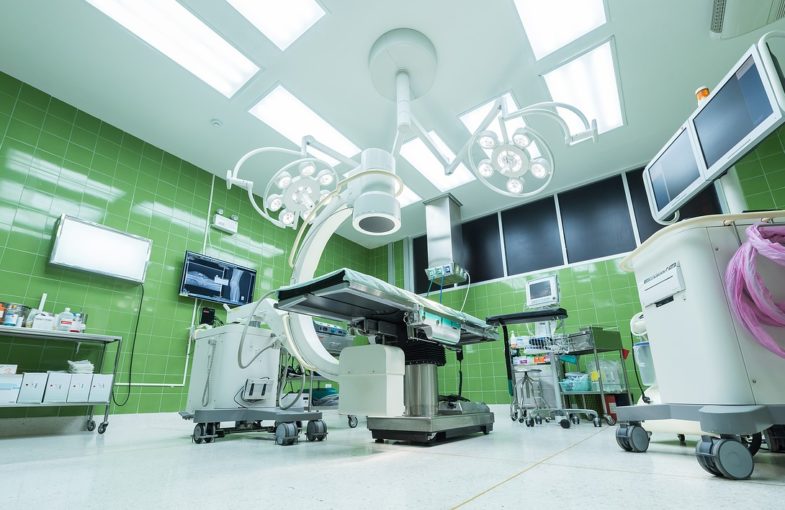If surgery is the residency that you’re interested in and doing very well on the NBME is a must for you, then continue reading. I received an A in the NBME and I will tell you exactly how I did it.
The surgery NBME is literally an internal medicine exam, with a sprinkle of surgical (we will just call this general surgery as it’s basically all GI). You will expect to find some pediatrics GI related illnesses and diseases, thrown in there also. But as you can see so far, the surgical part is really just gastrointestinal disease, which is of course part of internal medicine.
Below I will list the resources I used. Also personally, I have come to like doing study guides, and making them so that it helps when the time comes to review the material, I have a concise resource with all the information I need.
Uworld
– I literally did gastrointestinal, cardiovascular and respiratory, internal medicine questions in U-world. The exam questions basically come from these three sections. You can check out the NBME website and you will see what I am talking about. Most is suppose to be GI, and then the remainder surgery related questions (read GI with maybe some burns, othopedics, etc), along with cardiovascular diseases and respiratory diseases. Think congestive heart failure and murmurs and COPD. Of course those aren’t the only cardiovascular or respiratory illnesses but it gives you an idea of what are the high yield topics. I also did the surgery U-World, as there aren’t much questions but gives you an idea of how the surgery aspect can be incorporated into the exam. You wouldn’t be asked about procedures and so forth, but it is really sensible to recognize that surgeons have to know internal medicine, so just keep telling yourself that.
NBME Clinical Science Mastery – Practice Exams
– There are 4 surgery practice exams for $20 each, on the NBME website. They are the best way to assess how the exam is structured and what the NBME considers to be high yield disorders. I used the exams to basically practice my knowledge, rather than doing them during the time I was studying. I wanted to gauge my understanding of the topics and the exams are the best way to do that. It’s a little hefty for a medical student who’s got student loans, but it is definitely worth it. I would always recommend doing the NBME practice exams for all of the NBME because they really help.
Online Med Ed
– I used online med ed as a guide for when I was working on my study guide. They really do focus on the, yet again, high yield parts of the NBME. You will see that it is really mainly GI related issues, cardiovascular issues with kids and adults, and respiratory issues with kids and adults. So if you want a resource that’s not question based, then this is the one to use.
Books
– I used Pestana as a quick read and to just add the extra “surgery” related topics that I didn’t see in Online Med Ed (although majority was in it) and Devirgilio Surgery. I didn’t think the latter was that necessary to be honest. It feels like a case file read, more than anything and sometimes the way the management, investigations etc were listed, weren’t detailed enough. Whenever I got confused with what would be the “next best”, based on the information given to me in a vignette, which Devirgilio doesn’t really do a good job with, is use Online Med Ed. It’s basically the same thing that I did during internal medicine. Online Med Ed is really good for “next best” approaches so you can be really prepared for the NBME.
That’s really it. I didn’t want to use too much, because then it would have become overwhelming. When I was making my study guides, using Online Med Ed, I used Devirgilio to fill in certain surgical expectations that may pop up on the exam. For example, prior to treating someone with hyperadldosteronism due to an adrenal adenoma, spironolactone is given. We all know the treatment for an adenoma is a resection but that little tid bit isn’t something most resources speak about. This is where Devirgilio came in handy. This question was even on one of the practice exams from the NBME website, so it just goes to show that Devirgilio was good for something.
To finish off, I am going to repeat myself so that you’re convinced, even if you’re not by now. The surgery NBME is an internal medicine exam. If you had internal medicine before, literally reviewing whatever notes you have, casually, could afford you a very good grade; specifically GI, cardio and resp. I left the exam the same way I left the internal medicine exam; not being sure if I did well or not, because it is a hard exam as it’s basically internal medicine v.2. But, I got an A and it is all because of what I did above. Once you do the work, you will reap the rewards.
So good luck! You’d do great!
Related Posts
Avengers: Infinity War – Review and Spoilers! Next Post:
Gym Week 10 – Becoming Me Again





























